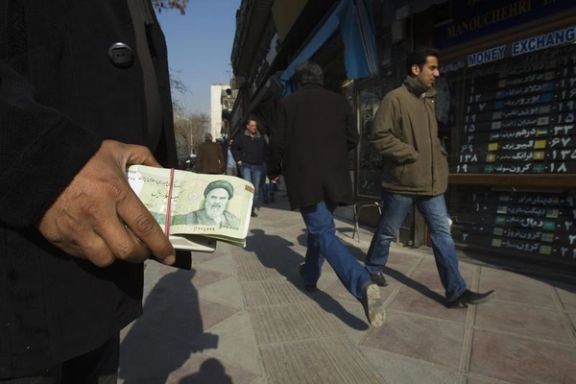Iran Claims Currency Reserves Rise Amid Toothless US Sanctions

Amid Iran’s claim of stronger economic resilience thanks to higher foreign currency reserves, there are increasing calls for more effective enforcement of US sanctions.

Amid Iran’s claim of stronger economic resilience thanks to higher foreign currency reserves, there are increasing calls for more effective enforcement of US sanctions.
The deputy chief of the Central Bank of Iran, Mohamamd Shirijian, said Tuesday that Iran's foreign reserves are increasing due to the growth of oil and non-oil exports.
He claimed that despite global economic shocks, Iran's GDP grew by 4% in 2022, and the growth rate in Q1 and Q2 of 2023 increased 5.3 and 6.2 percent, respectively.
The claims seem in contradiction to a report by reformist daily Ham-Mihan earlier in the day that forecasted a budget deficit twice as big as the figure in the previous year. The paper said if the country’s revenues in the second half of Iranian year (which ends in March 2024) mirror the trend in the first six months, the budget deficit would significantly worsen in comparison with last year.
It is very difficult to judge the veracity of the Central Bank's optimistic claim, given the lack of any positive movement in Iran's currency markets or the nearly 50-percent annual inflation rate. The current government dominated by hardliners is notorious with making outlandish claims of economic success.
One fact is clear; Iran is exporting much more oil than at any time since early 2018, before the United States withdrew from the JCPOA nuclear deal and imposed tough sanctions on Tehran's oil exports and international banking operations.
Under Trump’s maximum pressure, Iran’s oil exports were down to less than 500,000 barrels per day. Now the figure is reportedly nearly two million barrels. Iran regularly boasts about the rise in its oil exports, but the rise has not translated into tangible changes in the country’s economy.
The national currency rial has lost its value 12-fold since early 2018, when the United States withdrew from the JCPOA and imposed 'maximum pressure' sanctions. This has made imports much more expensive and has led to very high inflation at around 50 percent for the past three years. In recent weeks, the rial lost its value even further to stand at about 520,000 against the dollar over the crisis in Israel and talks of refreezing $6 billion recently released from South Korea under a prisoner swap deal with the US.
In a letter published Monday night, 63 Democrat and 50 Republican US lawmakers called on President Joe Biden to ensure maximum enforcement of all US sanctions and taking any and all steps to end Iran’s oil trade with China, which currently brings in well over $100 million per day in revenue.
In a separate initiative Tuesday, a group of Senate Republicans demanded once more that the administration refreeze the $6 billion parked at Qatari banks as part of a deal to free five hostages from Tehran.
“We know that Iran bankrolls Hamas,” said Senator Balckburn, leading the group. “It is perplexing why this administration refuses to issue a formal decision to freeze the $6 billion. We need to ensure that not another dollar goes to Iran.”
Senator George Marshall, one of the more vocal members of the Senatorial group who demanded the ‘refreeze’ on Tuesday, claimed that under Biden, Iran's currency reserves have gone “from $6 billion to $60 billion” because the regime has been allowed to sell “a billion dollars’ worth of oil every week to China.”